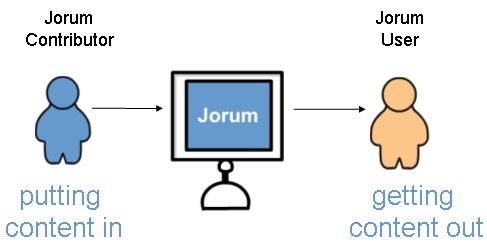I very much enjoyed the OER programme start-up meeting on Tuesday, in spite of the 05:30 alarm and having to hoof it across Manchester on account of ‘improvements’ to the Metrolink. I recognised several colleagues from other JISC programmes and was socially disorientated once more by the 21st Century experience of finally meeting f2f with real people with whom I’m already well acquainted in cyber-space – more so now than ever with fellow Twitterers.
Projects in the programme are divided into 3 discrete strands: subject; individual and institutional. In the institutional strand, UniCycle will aim to build a prototype mechanism for the import and export of OERs using our intraLibrary repository and the new JorumOpen service. Other projects in this strand are BERLiN, Open Exeter, OpenStaffs, Otter, Open Spires and Open Content Employability Project (link?).
The agenda for the day can be viewed at http://cloudworks.ac.uk/node/1725 along with aggregated tweets tagged #oerstartup ; Cloudworks is an environment that I haven’t encountered before but it looks very useful and I intend to explore it further – it was described to us as a way of making transient events more persistent and of bringing our fragmented online communications back together.
Like many on the day I was looking forward to the presentation from Jorum to learn exactly how that service is evolving to facilitate the OER programme. I have a particular interest, of course, as we also use intraLibrary as our repository platform and Unicycle will aim to disseminate OERs via both our own and the national service. The experience of Jorum and the problems they have had persuading folk to sign their institution up to their extensive licence agreement, become registered users and deposit their learning resources in intraLibrary – from where they can only be discovered and reused by other registered users – has been instructional for us and I am also aware, first hand, of the training required to use intraLibrary – an undeniably powerful system albeit where flexibility can perhaps translate to complexity for the user. In short, I was keen to discover how they plan to tackle these issues with the introduction of their three licence model and by facilitating easy deposit and (where appropriate) open access to LOs.

Current Jorum model
In her presentation (available here), Nicola Siminson first gave an overview of Jorum and JorumOpen; how the current model (illustrated above), is developing and the technical and policy initiatives that will underpin this development.
The 3 new licensing regimes are key:
- JorumOpen – for content whose creators and owners are willing and able to share their materials for anyone to use via the web, under Creative Commons (CC) licences
- JorumEducationUK – for content sharing where creators and owners need to restrict the availability of resources to members of UK Further and Higher Education institutions, authenticated via the Access Management Federation (this is most similar to the current licence)
- JorumPlus – for sharing content with additional restrictions, for example where material licensed via JISC Collections or from third parties is involved; this will require institutional authorisation
Work on the platform is ongoing and we were promised that:
- access will be open to anyone
- materials will be more discoverable – e.g. Google – JorumOpen will be exposed to search engines
- users will be able to search the whole Jorum repository via the website – no logging on to download
These are all issues that we have also been exploring and I expect that Jorum will need to develop an interface based on SRU similar to that developed by IRISS and our own research interface. It would be very useful too if we can compare notes on facilitating effective Google search/SEO.
Then came the demonstration of the OER deposit tool – http://deposit.jorum.ac.uk – which:
- allows the deposit of a simple item, or collection of items
- a link/URL to an open educational resource from a remote site
- authenticated access and a simple one-off registration
- UK Access Management Federation – single sign-on at home institution
- upload content, submit basic metadata and select a suitable Creative Commons licence
- with option to add more metadata, for greater discoverability…and will ultimately enable the sharing and finding of OER via JorumOpen!
It looks good. Albeit in beta. Jorum are keen for the community to test it over the coming months and submit any feedback from the website.
I asked whether the software/code will be made available so we may implement a similar tool as part of our repository infrastructure at Leeds Met; in addition, as Unicycle will use both our own repository and Jorum to disseminate OERs, I would also like to explore dual deposit from a web based interface so users may deposit into both repositories simultaneously. As such I would also be interested in the workflow(s) and metadata templates that Jorum are using with the deposit tool. Will resources be published directly to the library, for example, or will they go into a user’s work area or into an administrative work area for metadata enrichment?
I was advised that the software will indeed be available to other projects though not in a neatly packaged format.
NB. I had assumed that the deposit tool was based on SWORD which I know does facilitate deposit into multiple repositories – it appears, however, that it is actually based on MrCute which does not, in fact, use the SWORD protocol so this will need further exploration.
Finally delegates were urged to join the Jorum community – http://community.jorum.ac.uk/
Other useful presentations throughout the day included Project Management
Evaluation and Synthesis project, OU-supported communities and OER infokit
(links to all presentations in one place at http://www.jisc.ac.uk/whatwedo/programmes/oer/startupmeeting090609.aspx)
And then, on the way back to Euston, I popped in the British museum and admired bits of the Parthenon and some Sarcophagi (Sarcophaguses?)
